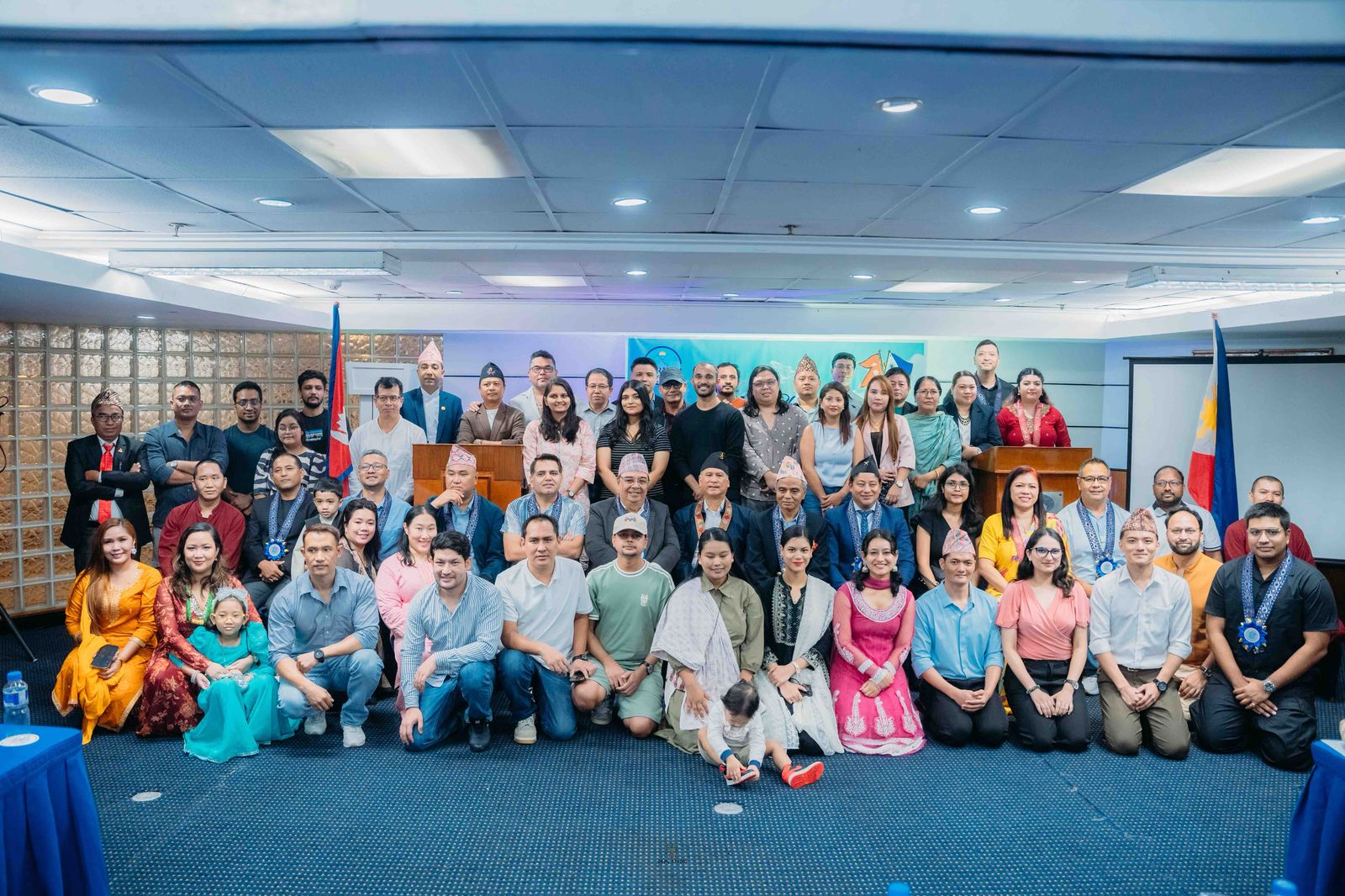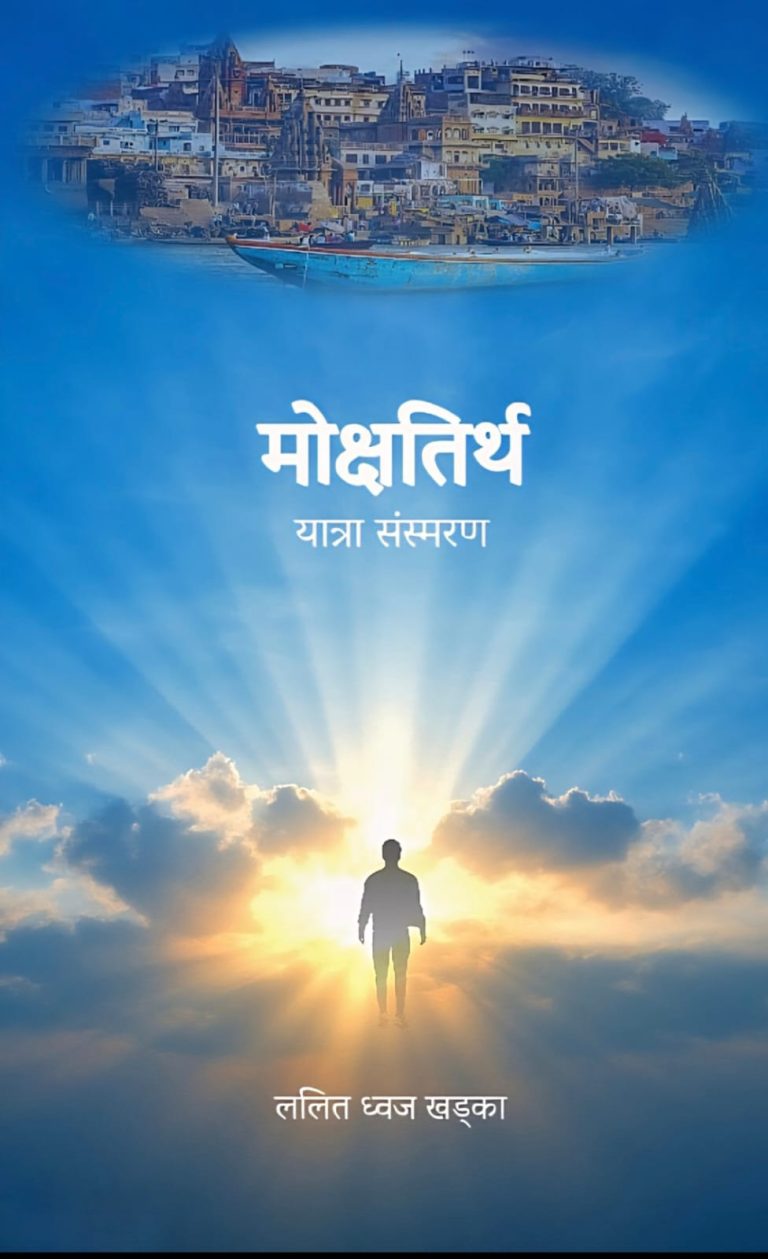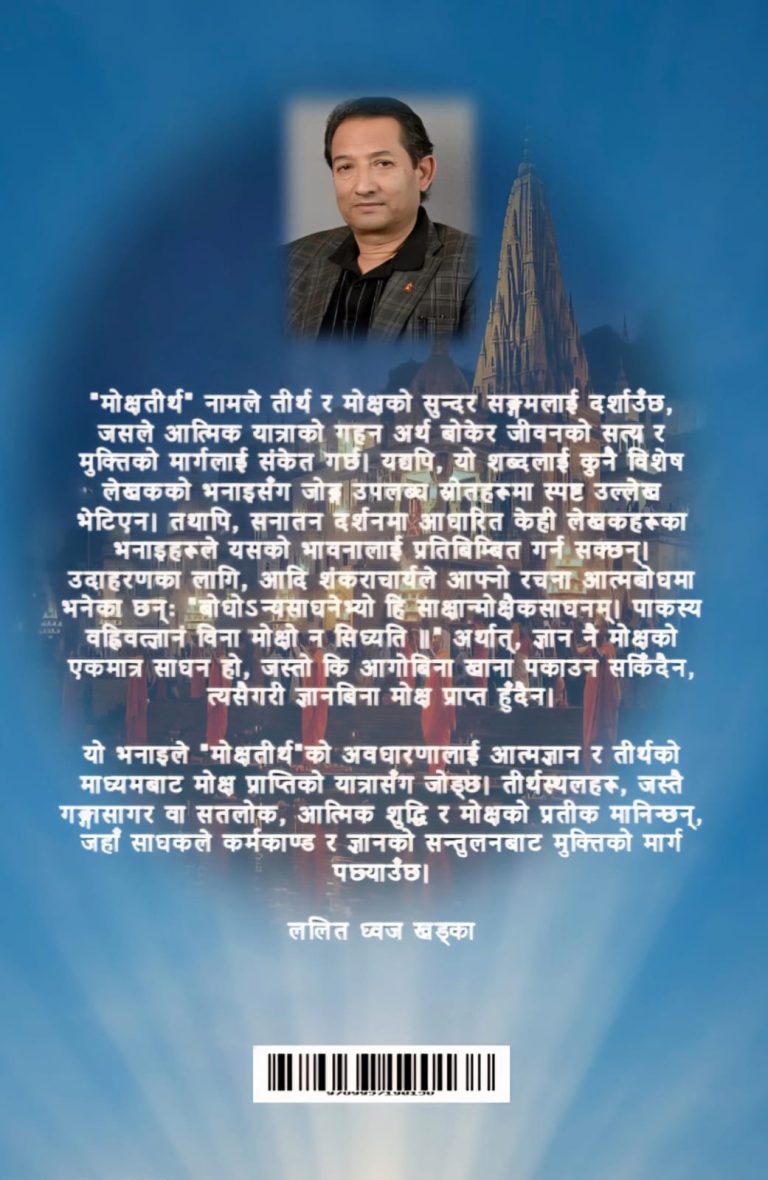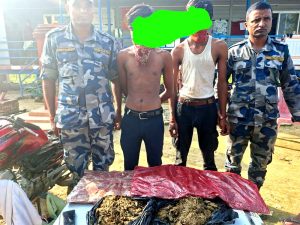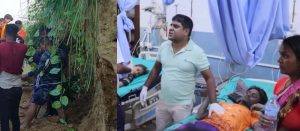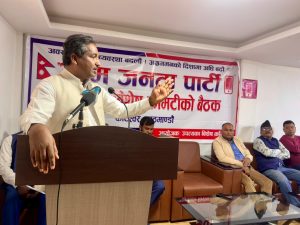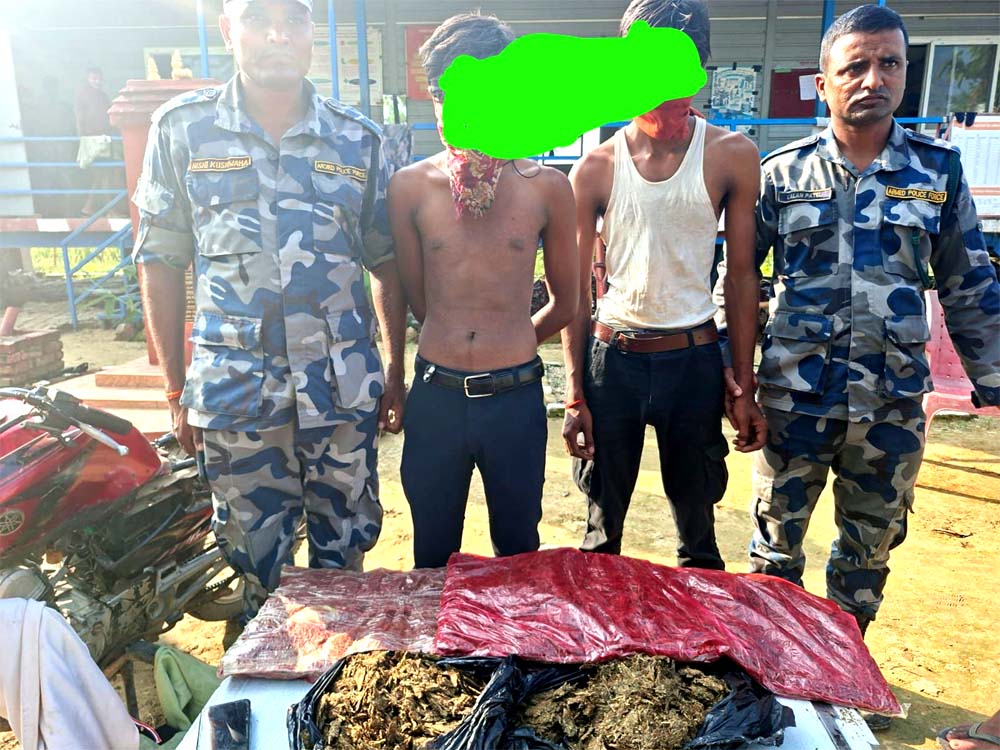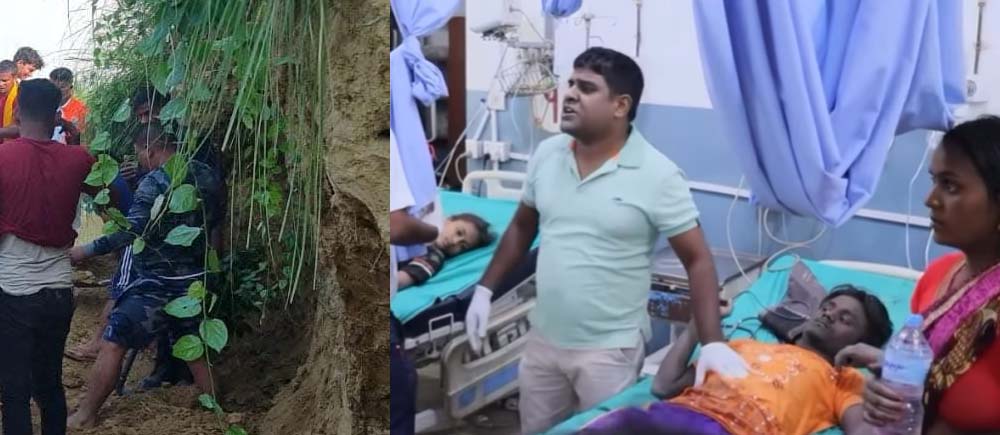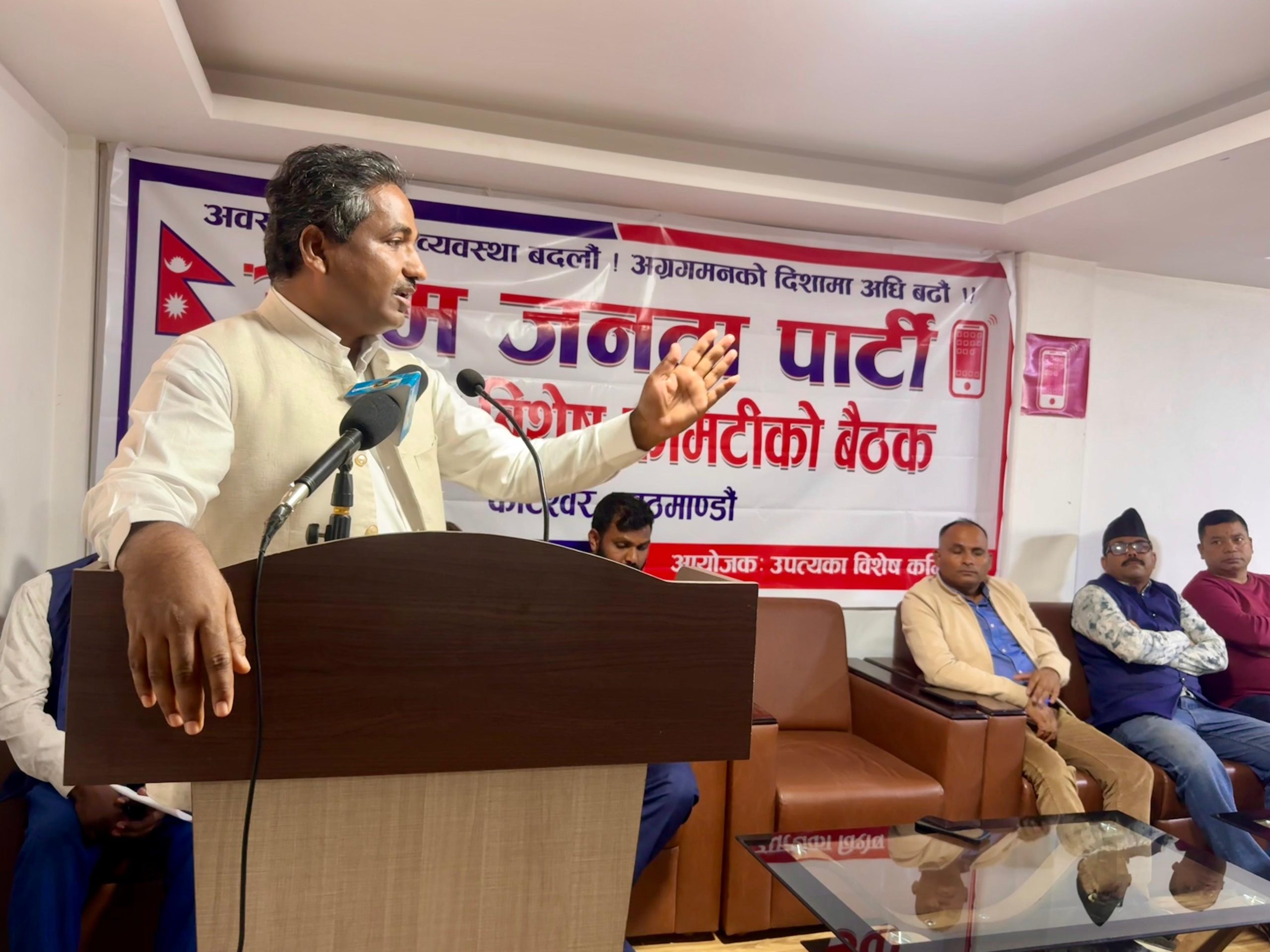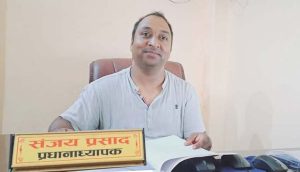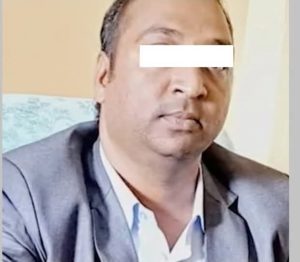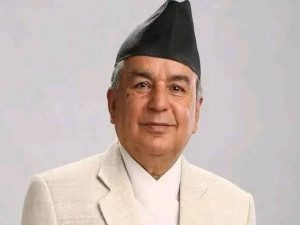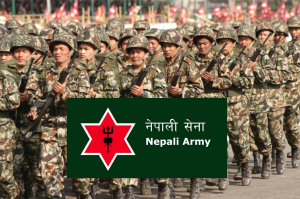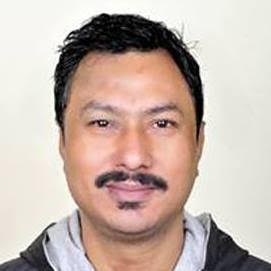Kathmandu — “The unity, cooperation, and contribution of the Nepali community are truly exemplary. It is an honor for me to participate in such an event,” said Dr. Jose Paulo E. Campos, the Honorary Consul General of the Philippines to Nepal, during a grand General Assembly and Oath-taking Ceremony of NRNA Philippines held at Pearl Hotel, Manila.
The event was organized by the Non-Resident Nepali Association (NRNA) Philippines. The formal inauguration was marked by the lighting of a traditional oil lamp (panas) accompanied by the national anthems of both Nepal and the Philippines, reflecting a blend of traditional and cultural dignity.
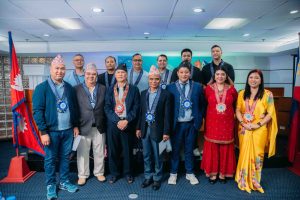
Welcoming the attendees, Vice President Dr. Sangit Kashaju highlighted the history and contributions of the association, emphasizing NRNA’s decisive role in uplifting the living standards of Nepali migrants. Citing the medical aid campaign following the devastating 2015 earthquake, he recalled the dedication and activeness of the organization.
Newly elected President Prakash Shrestha delivered the keynote speech, reviewing the organization’s achievements and outlining the roadmap for future action. He reaffirmed the organization’s commitment to unity, mutual cooperation, and active participation as core principles, with a focus on empowering the Nepali diaspora.
Founding President and Senior Advisor Sudarshan Kumar Khadka administered the oath to the newly elected executive committee, urging them to remain faithful to their responsibilities. The new leadership pledged to serve the organization with transparency, dedication, and commitment.
To ensure active participation from attendees, the program also featured an open forum and self-introduction session, promoting mutual acquaintance, idea exchange, and constructive discussions.
The concluding session was a blend of cultural flavor and entertainment. Authentic Nepali cuisine was served by “Kathmandu Thakali Kitchen Manila,” and a lively showcase of Nepali music and dance was performed by Nepali students studying at Emilio Aguinaldo College, offering a vibrant representation of Nepali art, identity, and diversity.
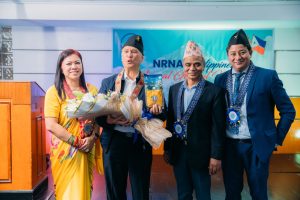
In his closing remarks, Sudarshan Khadka reiterated NRNA’s core objectives and called on all Nepali expatriates to unite for collective welfare. Representing the shared interests of Nepalis engaged in health, education, information technology, business, and social services, NRNA Philippines continues to serve as a strong platform for the Nepali diaspora.
This program not only formalized the leadership transition but also reinforced the sense of unity, collaboration, and cultural identity within the Nepali community.
By Esther Dhakal



